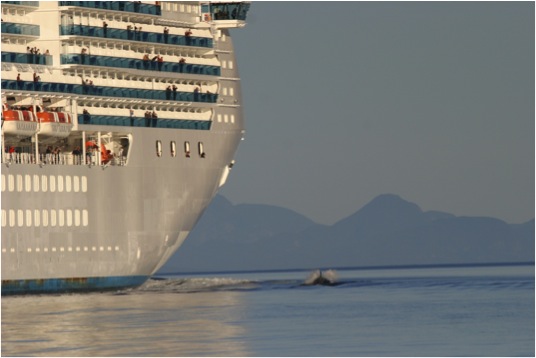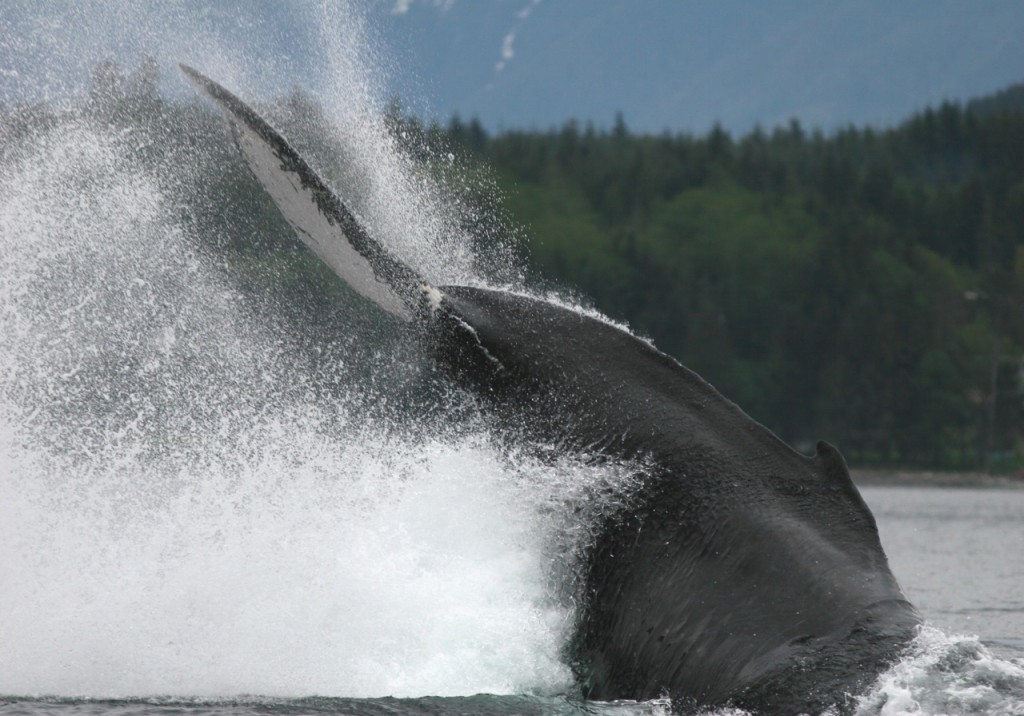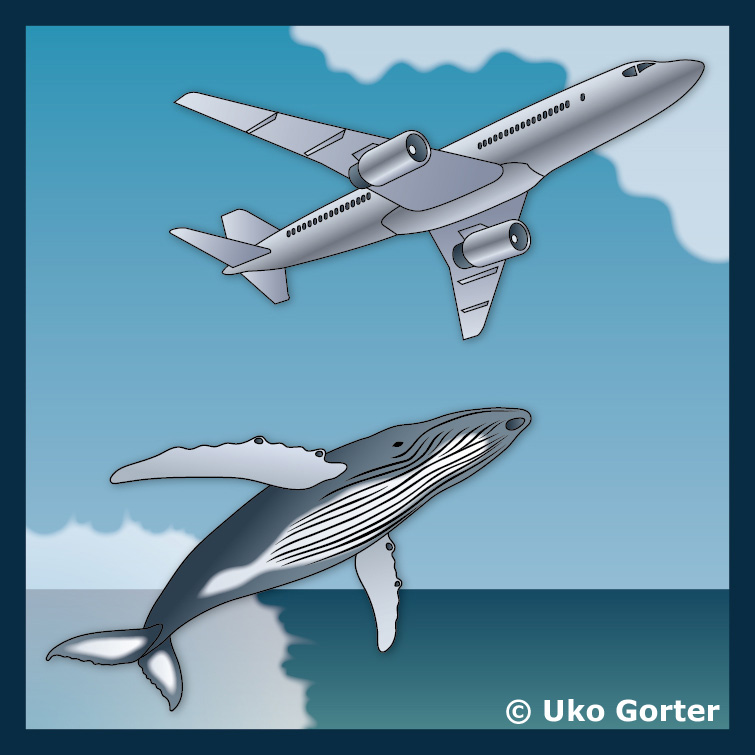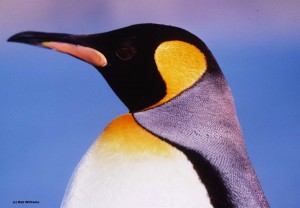
Killer whales depend on a quiet ocean to navigate, find food and choose mates. Much of our work with acousticians at Cornell involves estimating how much acoustic habitat whales are losing from chronic, rising levels of noise. Here’s a simple animation that describes that work.
In addition to masking the whales’ calls, animals can also show behavioural responses to ships. Our new research, published in Marine Pollution Bulletin, shows that ships cause whales to change their swimming speed, breathing patterns and path direction. In most parts of the whales’ range, whales rarely encounter big ships; but in the whales’ most important, critical habitats (Johnstone and Haro Straits), the whales may encounter a big ship every hour of every day.
This new research allows us to predict how often the whales change their behaviour to accommodate a ship. Our next work will make some predictions about what it might cost the whales at a population level to spend less time feeding and more time avoiding ships. Our ultimate aim is to partner with ship builders and operators to find ways to reduce those costs to whales.



